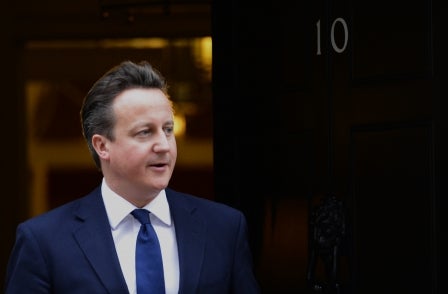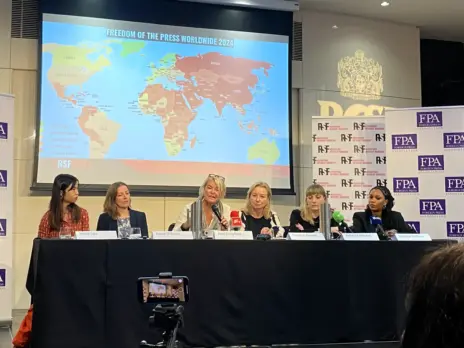
Prime Minister David Cameron has accepted the recommendation for a change in the law to protect journalists' phone records from police spying.
The change was called for in the Interception of Communications Commissioner's Office report on police use of the Regulation of Investigatory Powers Act, released this afternoon.
The Prime Minister's acceptance of this principle means victory is in sight for Press Gazette's Save Our Sources campaign.
Press Gazette launched the campaign in September following news that the Met Police had viewed the phone records of The Sun as part of the Plebgate leak inquiry.
A report published today by the Interception of Communications Commissioner's Office revealed that 34 police investigations to find out journalists’ sources have been conducted over the last three years involving 105 journalists. The phone records of 82 journalists were secretly accessed by police under the Regulation of Investigatory Powers Act.
Many of these involved cases where the journalists themselves were not under suspicion of committing any crime.
Under the existing law, a police officer of superintendent rank can sign off requests to view telecoms records of journalists.
The IOCCO report says officers have not taken account of the extensive legal safeguards given to journalists under Article 10 of the European Convention on Human Rights (freedom of expression).
And it also says a new proposed code of practice on use of RIPA does not go far enough and that instead a change in the law is needed to ensure that police requests for journalists’ telecoms records must require the approval of a judge.
The Prime Minister's official spokesman said he accepted the commissioner's recommendation: "He very much welcomes the report. He believes that the report makes the case well for the judicial oversight it recommends in cases of data comms applications that are relevant to journalistic sources and that is why the Government is accepting that recommendation."
Looking at the 608 applications police have made to view telecoms records in order to find journalists’ sources of the last three years, the IOCCO said that “the majority of applications did not sufficiently justify the principles of necessity and proportionality”.
Shortcomings of these applications identified by the IOCCO include:
- a lack of specific detail about the information that had been (or was suspected to have been) leaked
- whether in the circumstances of the case the high threshold for suspecting the common law offence of misconduct in public office had been met
- insufficient consideration of whether the leaked information was of public interest merit
- what actual damage the leaked information had caused, or was likely to cause
- whether the damage caused by the provision of that information amounted to a pressing social need justifying identification (and perhaps sanction) of the source
- whether there was a disproportionately high risk of collateral intrusion into legitimate journalistic sources, and
- a lack of detail about how the data would be analysed, processed and retained within the public authority to prevent unwarranted intrusion.
The IOCCO said the “poor quality” of many RIPA applications was due to the fact that they focus on privacy (Article 8 of the European Convention of Human Rights) rather than freedom of expression (Article 10).
The reports adds that “the power to authorise the acquisition of communications data which seriously risks revealing the confidential sources of journalists should be removed from those presently properly appointed as designated persons and passed by statute to a judge”.
Around 100 editors have signed a joint letter of protest about the current draft code of practice on use of RIPA which says police forces can continue to sign off their own requests for journalists’ phone records.
The IOCCO agrees that the draft RIPA code “is not sufficient in giving clear and adequate guidance".
"The current and revised Codes do not provide any clear guidance on how designated persons should actually apply the principles of necessity, proportionality and collateral intrusion when dealing with data relating to communications with journalists or take account of the added dimension that the requirement may lead to the identification of journalistic sources, whether an intended consequence or not. As such the law governing freedom of speech and the protection of journalistic sources must also be considered."
It says: “A judicial decision, such as legislation requires in other related circumstances, would necessarily address the legal considerations in full, in particular these questions with reference to the particular facts of the individual case.”
The IOCCO report states: “Judicial authorisation must be obtained in cases where communications data is sought to determine the source of journalistic information.”
“Our conclusion is to advise the Government to implement these recommendations in order to provide adequate protection for journalistic sources, and enhanced safeguards to prevent unnecessary or disproportionate intrusions.”
Email pged@pressgazette.co.uk to point out mistakes, provide story tips or send in a letter for publication on our "Letters Page" blog






